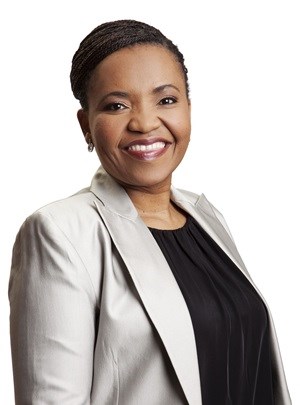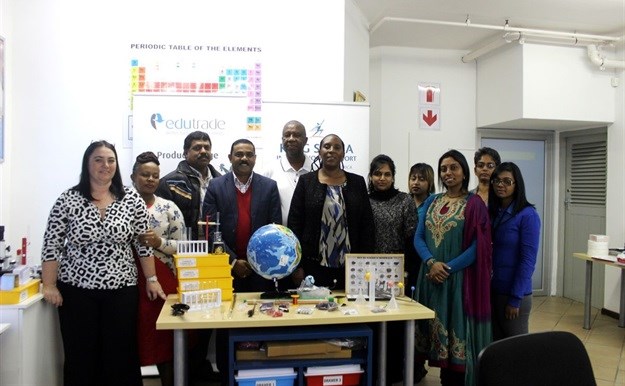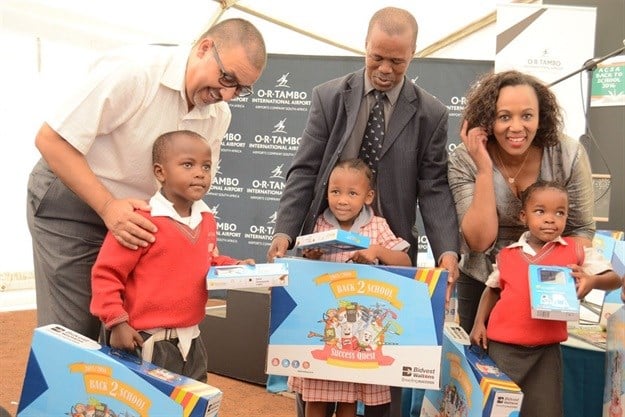
Related
Top stories





Marketing & MediaAds are coming to AI. Does that really have to be such a bad thing?
Ilayaraja Subramanian 1 day

More news
















We interviewed Refentse Shinners, group executive for corporate affairs at ACSA, to find out more about the company's corporate social investment initiatives and the impact these programmes are having on airport communities.
ACSA contributes to the development and social upliftment of our country in a number of ways, including corporate social investment. During 2017, we spent approximately R40m on worthy causes to support SED near our airports.
Our SED strategy focuses on education, youth and women development, persons with disabilities, environmental sustainability, employee volunteerism and philanthropic donations.
ACSA is proud of three initiatives within its education, women and youth empowerment, and skills development programmes:
The Teacher and Learner Development Programme in the Eastern Cape. This province has been identified as one of the worst performing by the Department of Basic Education. ACSA took a decision to improve education in the province by introducing a learner/teacher development programme in East London and Port Elizabeth. Two schools were identified, namely Walmer High School in Port Elizabeth and Umtiza High School in East London. Both schools are within a 5km radius from East London Airport and Port Elizabeth International Airport, respectively.

The programme, which commenced in April 2017, focuses on mathematics, physical science and accounting for learners in grades 10 to 12. The teachers also receive capacity and development training.
ACSA has partnered with Nandos and Goodbye Malaria with the aim of developing entrepreneurs through retail skills and knowledge development training. It has provided Goodbye Malaria with retail space for kiosks at no cost. The concept was piloted at OR Tambo International Airport in 2016. The partnership has been extended for a further two years and the project is now operational in Cape Town International Airport and George Airport as well, with plans underway for other viable airports.

In developing the realigned runway at Cape Town International Airport, ACSA engaged with neighbouring communities to provide construction development to upskill unemployed community members. The development benefits communities of Freedom Farm, Malawi Camp and Blikkiesdorp. The beneficiaries are being capacitated to build their own homes, in partnership with the City of Cape Town Metropolitan Municipality. Further to this skills development programme, we have also established a feeding scheme in partnership with Operation Hunger.
The Learner/Teacher Development Programme opened many opportunities for the learners and both schools saw an immediate improvement in their results. As a result of ACSA’s intervention, the preliminary performance report demonstrated drastic improvements from 22% in 2016 to 72% in 2017 at Walmer High School and 50% in 2016 to 52% in 2017 for Umtiza High School.

Another project in the Learner/Teacher Development Programme was completed at the end of May 2018 with the handover of a computer centre, science laboratory, a library and new ablution and sanitation facilities at the Inkomazi Senior Secondary School in Mangweni, Mpumalanga.
Through the Goodbye Malaria initiative, to date 18 direct jobs have been created for youth who come from impoverished backgrounds. The youth have received training in various skills relevant for the retail industry. Furthermore, the goods sold at the kiosks are sourced from 100% black-women-owned businesses. The funds also go towards fighting malaria in South Africa, Mozambique and Swaziland.
As part of the Cape Town Runway Revamp Skills Development Programme, the Blikkiesdorp Football Programme was implemented in Association with the South African Football Association (SAFA). Through this programme, 23 community members obtained SAFA, CAF and FIFA accredited coaching licenses and 10 community members obtained their SAFA, CAF and FIFA accredited referee licenses. In total, 250 community members benefited directly through this programme.
The project also empowers the community with community-based housing skills so that they can build their own homes.
In April 2016, we began implementing our three-pillar strategy towards attaining the objectives outlined in our Vision 2025. Our strategy is supported by a newly implemented governance framework and operating model, which aims to enrich and augment the way we do business.
Youth unemployment is a growing concern as it relates to the economy. As a business, we identify opportunities that will assist with empowering the youth in communities where our airports operate. Through the identified interventions, ACSA helps decrease youth unemployment and promote independence amongst youth in the country by stimulating their participation in the economy.
ACSA supports the Youth Entrepreneurship programme in partnership with registered tertiary institutions such as FET colleges around our airports that offer business-related courses to train business-minded youth. They are provided with skills transfer, mentorship, and funding.
